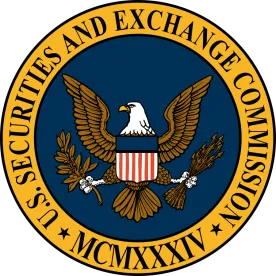On September 25, 2019, the Securities and Exchange Commission (the "SEC") adopted Rule 163B under the Securities Act of 1933, as amended (the "Securities Act" ), which permits all issuers, including business development companies ("BDCs") and registered investment companies (collectively, "Funds"), to gauge market interest in contemplated registered securities offerings by engaging in oral or written communications ("test-the-waters" communications) with certain potential investors prior to, or following, the filing of a registration statement.[1]
The SEC adopted Rule 163B largely as it had been proposed,[2] expanding to all issuers an accommodation previously available only to emerging growth companies. The final rule, which reflects the SEC's ongoing focus on efforts to expand access to the public capital markets, will be effective 60 days after its publication in the Federal Register.
Permitted Communications.
Rule 163B creates a conditional exemption from the communication restrictions in Sections 5(c) and 5(b)(1) of the Securities Act. Rule 163B allows any prospective issuer—and persons authorized to act on behalf of the issuer, including underwriters—to engage in test-the-waters communications prior to, or following, the filing of a registration statement. The communications must be limited to potential investors who are, or that the issuer or person authorized to act on its behalf reasonably believes are, "qualified institutional buyers" (as defined in Rule 144A under the Securities Act) or institutional "accredited investors" (as defined in Rule 501 under the Securities Act). The SEC expressly declined to mandate any particular process to determine investor status. Communications that comply with Rule 163B are not required to be filed with the SEC or include any specific legends.
The SEC also revised Rule 405 under the Securities Act to clarify that, consistent with existing practice with respect to emerging growth companies under Section 5(d) of the Securities Act, communications made pursuant to Rule 163B do not constitute "free writing prospectuses." However, test-the-waters communications will be deemed "offers" subject to liability under Section 12 of the Securities Act, as well as the anti-fraud provisions of Section 17(a) of the Securities Act and Section 10(b) of the Securities Exchange Act of 1934, as amended (the "Exchange Act"). Additionally, whether a test-the-waters communication constitutes a general solicitation that would disqualify the issuer from immediately completing a subsequent private offering will depend on the facts and circumstances of the communication.
Application to Funds.
Rule 163B permits Funds, after filing a registration statement under the Securities Act, to communicate with qualifying prospective investors about a contemplated offering without complying with the existing regulations on "sales literature," including certain filing, disclosure and legending requirements in Rules 482 and 497 under the Securities Act and Section 24(b) of the Investment Company Act of 1940, as amended (the "Investment Company Act"), and the related rules thereunder.
The SEC acknowledged in the Adopting Release that the benefits of Rule 163B may be more limited to Funds than to other issuers. For example, Funds contemplating a registered offering at the time of their formation often register as investment companies during a seeding period. Typically, these Funds file a single registration statement under both the Securities Act and the Investment Company Act, which limits the length of the pre-filing period for newly formed entities. In adopting the final rule, the SEC declined to create an exemption allowing a Fund that would otherwise be required to register under Section 8 of the Investment Company Act to avoid registration under the Investment Company Act while it engages in test-the-waters communications. Further, Funds (other than certain private BDCs or other private funds that subsequently choose to provide liquidity through a registered public offering) typically conduct an offering within a shorter time frame after formation than most other types of issuers. Moreover, the practical utility of test-the-waters communications may be limited for Funds due to the absence of significant demand from institutional investors in recent registered public offerings of equity securities.
Despite the potentially more limited use of Rule 163B by Funds, test-the-waters communications may help Funds better evaluate market demand for particular investment strategies and fee structures prior to filing a registration statement, thereby minimizing disclosure changes (and related costs). The post-filing communications may also result in lower costs and greater flexibility for Funds desiring to communicate with qualifying investors after filing a registration statement. In addition, a Fund that preliminarily engages in an exempt offering but is considering a subsequent registered offering could rely on Rule 163B to engage in test-the-waters communications before filing a registration statement under either the Securities Act or the Investment Company Act.
Interplay with Securities Offering Reform for Funds.
Rule 163B is non-exclusive, and issuers may rely on other Securities Act rules when communicating about a contemplated securities offering, such as Rule 163 (the pre-filing well-known seasoned issuer exemption) or Rule 164 (the post-filing free writing prospectus exemption). However, BDCs and registered investment companies have historically been " ineligible issuers" unable to rely on those exemptions.
On March 20, 2019, in response to direction by Congress,[3] the SEC proposed a series of rule and form amendments that would, among other things, reconcile the communication rules applicable to BDCs and registered closed-end funds under the Securities Act with those applicable to operating companies.[4] As proposed, the rule and form amendments would permit qualifying BDCs and registered closed-end funds to rely on Rules 163 and 164. The SBCAA's revisions to offering rules and forms became self-implementing with respect to BDCs on March 24, 2019, permitting BDCs to currently rely on Rules 163 and 164 pending finalization of the proposed rule and form amendments by the SEC. Registered closed-end funds, however, remain unable to rely on these exemptions. Under the Growth Act, the SEC has until May 24, 2020 to finalize the rule and form amendments for certain registered closed-end funds.
Until the rule and form amendments are finalized, Rule 163B offers all Funds an exemption similar to Rule 163, although with some significant differences. In connection with an offering by a well-known seasoned issuer (a "WKSI"), Rule 163 exempts from Section 5(c) of the Securities Act oral or written communications made prior to the filing of a registration statement by or on behalf of the issuer, subject to legending and filing requirements. Rule 163 does not limit communications to any particular group of potential investors, while Rule 163B limits communications to qualified institutional buyers and institutional accredited investors. However, unlike Rule 163, Rule 163B is available to non-WKSI issuers, permits communications both prior to and following the filing of a registration statement, does not feature legending and filing requirements, and permits underwriters to rely on the exemption provided by the rule.
_________________
[1] SEC Release No. 33-10699 (the "Adopting Release") is available at: https://www.sec.gov/rules/final/2019/33-10699.pdf. As of the date of this client bulletin, the final rule has not been published in the Federal Register.
[2] For a discussion of the proposed rule and its implications, see "SEC Proposes Reform of 'Test-the-Waters' Communications Rules," Proskauer Rose LLP (February 21, 2019), https://www.proskauer.com/alert/sec-proposes-reform-of-test-the-waters-communications-rules. SEC Release No. 33-10607 is available at: https://www.sec.gov/rules/proposed/2019/33-10607.pdf.
[3] See Section 803(b) of the Small Business Credit Availability Act, Pub. L. No. 115-121, title VII (the "SBCAA") and Section 509(a) of the Economic Growth, Regulatory Relief, and Consumer Protection Act, Pub. L. No. 115-174 (the "Growth Act").
[4] For a discussion of the proposed offering reform, see “SEC Proposes Reforms for Business Development Companies and Registered Closed-End Funds," Proskauer Rose LLP (March 25, 2019), https://www.proskauer.com/alert/sec-proposes-reforms-for-business-development-companies-and-registered-closed-end-funds.






 />i
/>i
